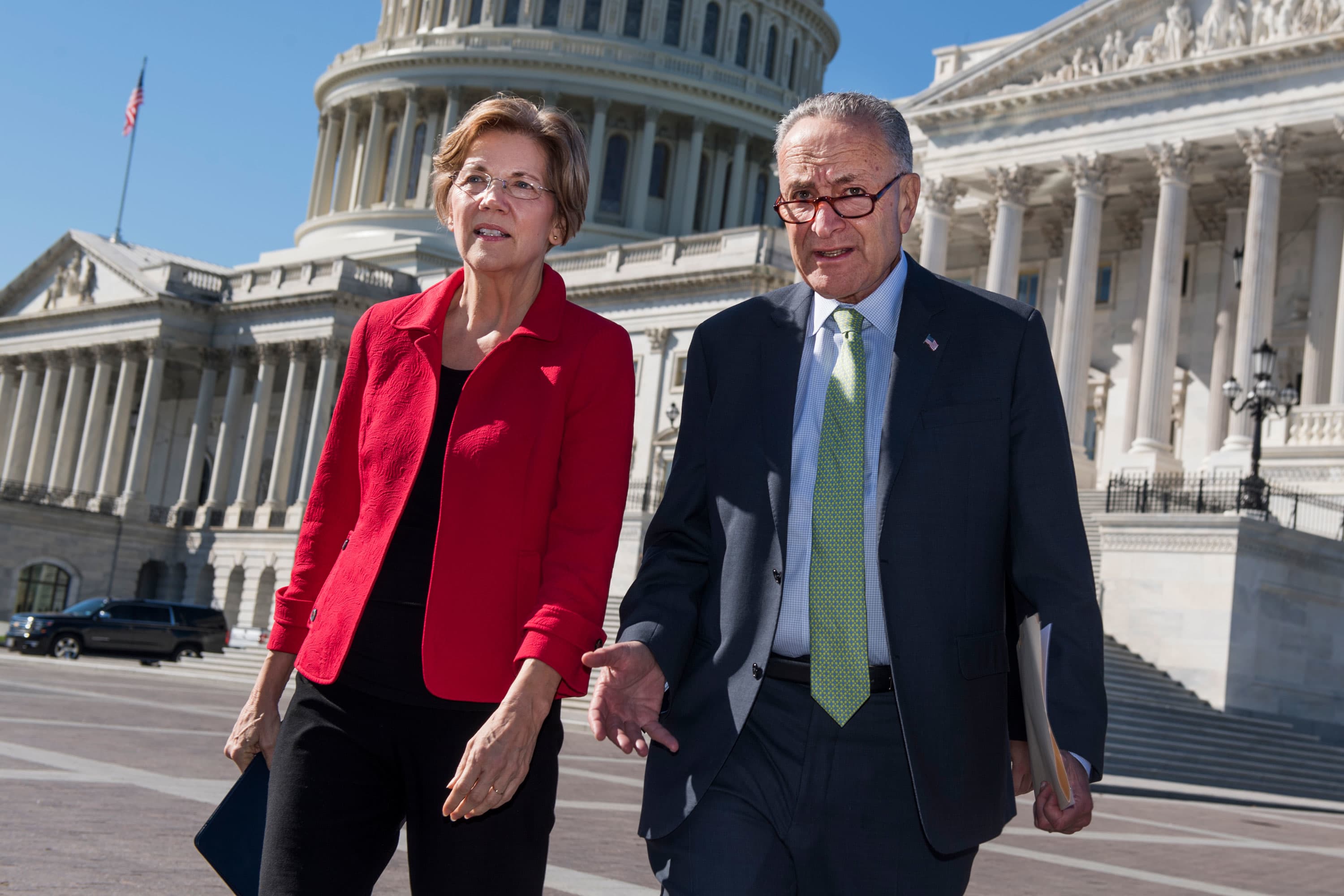
Senate Minority Leader Chuck Schumer, D-N.Y., and Sen. Elizabeth Warren, D-Mass., announced a resolution Thursday that would broadly cancel federal student loan debt due to the coronavirus crisis.
The resolution calls on President Donald Trump to take executive action to forgive up to $50,000 in debt for borrowers.
The economic aftermath from the pandemic, which caused unemployment to spike and wages to fall, has made it nearly impossible for many borrowers to repay their college loans, the senators said.
Even before the coronavirus outbreak, college costs have been increasing significantly for years. As a result, student debt has reached record proportions, with more than $1.5 trillion in loans outstanding.
Now, roughly 43 million adults currently have a federal student loan, according to the U.S. Department of Education.
But the burden is not shared equally among graduates. Studies show that women and Black students, particularly those from low- and moderate-income families, carry most of the nation’s debt.
More from Personal Finance:
The private student loan market has grown
College students are worried about their financial future
Back on campus or distance learning: Students are conflicted
“The current public health and economic crisis caused by the Covid-19 pandemic has only exacerbated the urgency to respond to a student loan crisis that continues to disproportionately affect Black borrowers and other borrowers of color, women, veterans and low-income families,” Ashley Harrington, the advocacy director and senior counsel at the Center for Responsible Lending, said in a statement.
“We applaud Senators Warren and Schumer for drafting a plan that would provide crucial student debt relief to at least 44 million borrowers who owe more than $1.5 trillion in student loans.”
Joining the resolution are Senators Sherrod Brown, D-OH, Richard J. Durbin, D-IL, Bernard Sanders, I-VT, Tammy Duckworth, D-IL, Richard Blumenthal, D-CT, Chris Van Hollen, D-MD, Jeff Merkley, D-OR, Edward J. Markey, D-MA, Cory Booker, D-NJ, Robert Menendez, D-NJ, and Ron Wyden (D-OR), according to a statement.
The Department of Education has offered some relief by pausing payments on federal student loans until the end of the year. It remains to be seen if borrowers will get more assistance in a second stimulus package.
In the meantime, even private student loan servicers are now amenable to temporary hardship accommodations, often on a case-by-case basis.




